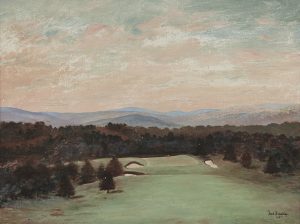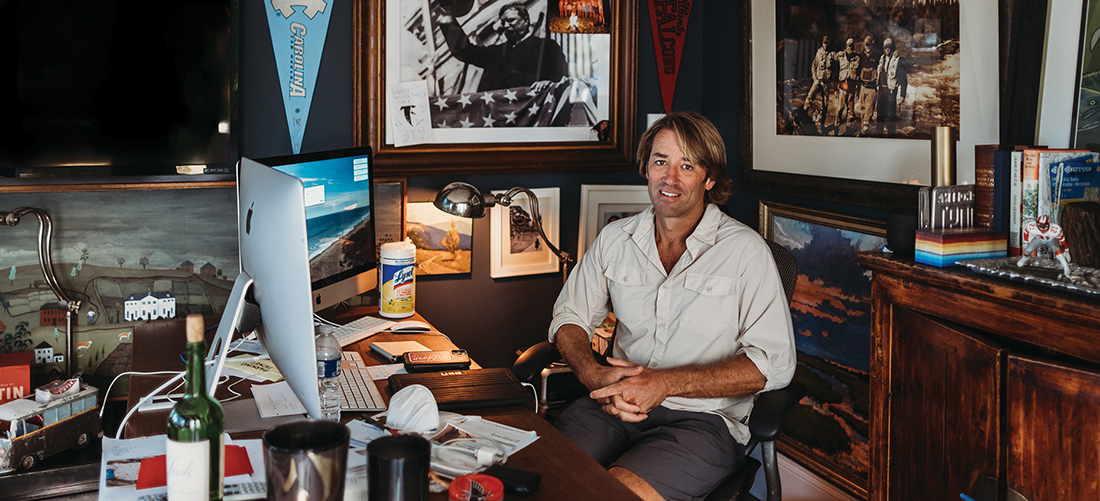
The Lost Treasure of Home
Jonas Pate and his runaway hit Outer Banks
By Wiley Cash
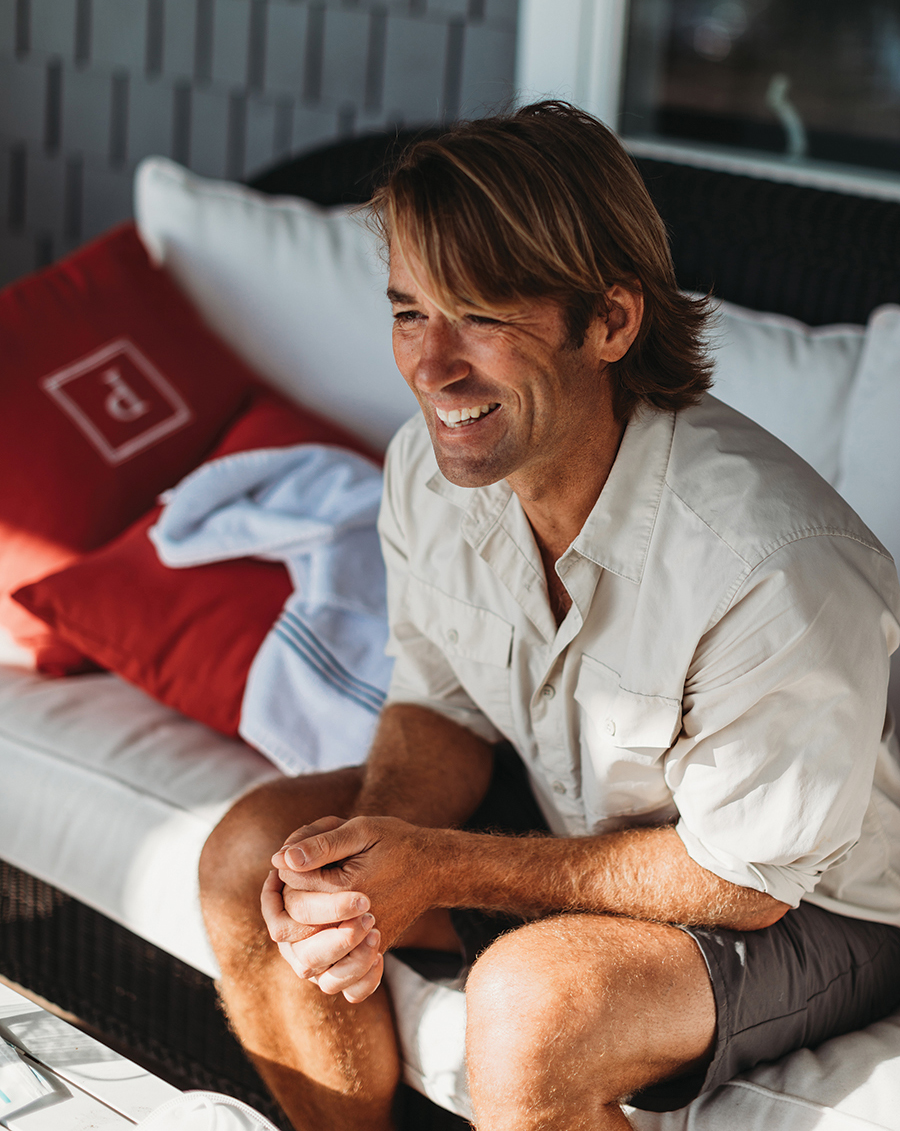
While there is plenty of mystery in the breakout Netflix smash hit Outer Banks — everything from a father lost at sea to a legendary treasure — the mystery that director and co-creator Jonas Pate seems most intent on exploring is the age-old mystery of what divides people along class lines. It worked for Shakespeare with his Montagues and Capulets, and 370 or so years later it worked again for Bernstein’s and Sondheim’s Jets and Sharks. Pate’s rival groups are similarly aged, sun-kissed teenagers living and partying along North Carolina’s Outer Banks, where a group of working class kids known as the “Pogues” continually find themselves marginalized and dismissed by the “Kooks,” who are the children of wealthy residents and seasonal tourists. Fists and hearts certainly fly, but despite the show’s use of cliffhangers and action-packed sequences, at its core Outer Banks investigates the emotional and experiential threads that pull some of us together across class lines while invisible barriers push others of us apart.
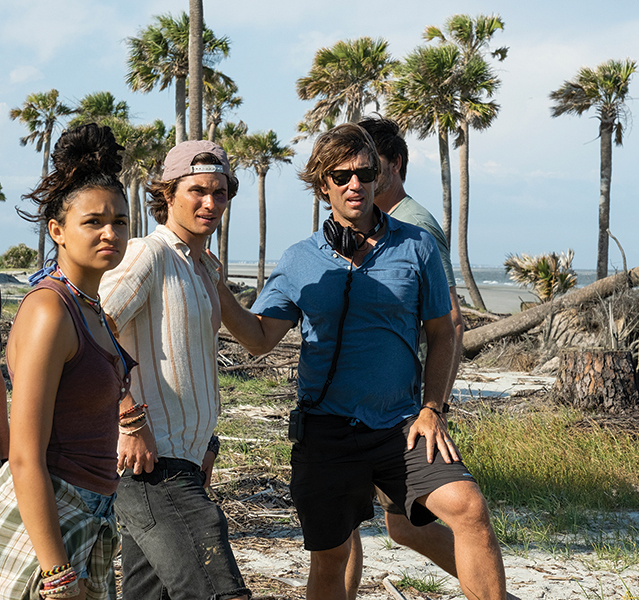
According to Pate, the divide between the haves and the have nots is “the oldest story in the world. It cuts across everything,” which he believes explains the show’s broad appeal.
Broad indeed. In the late spring of 2020, just as the people of the world were settling into the pandemic and the realization that they did not want to see or hear another word about Tiger King and Joe Exotic, Outer Banks debuted in mid-April and quickly became one of Netflix’s most watched shows of the year. The following summer, the show’s second season hit No. 1 on the Nielsen report. The success seemed immediate, and the show’s slick production quality made it all appear as easy and relaxed as a day on the water, but Jonas Pate and his twin brother, Josh, with whom he created Outer Banks along with Shannon Burke, had spent their whole lives preparing for this moment.

The Pate brothers grew up in Raeford, North Carolina, where their father served as a judge and their grandfather owned a local pharmacy. “It was amazing,” Jonas says. “It was like Mayberry. I’d ride my bike to the pharmacy and get a Cherry Coke and a slaw dog, and then I’d visit my dad at the courthouse. My stepmom was head of parks and recreation, so I’d go over there and help ref T-ball games.”
We are sitting on the second-story porch of the home he shares with his wife, Jennifer, and their two teenage children in Wilmington, just across the water from Wrightsville Beach. The January morning is unseasonably warm and sunny, and Jonas is dressed as if he just stepped off the set of Outer Banks, not as its director but as one of its stars. (How handsome is Jonas Pate? A few days later, our 5-year-old daughter will walk past Mallory’s computer while she is editing photos of Jonas. She will stop in her tracks and ask, “Who is that?”)
Jonas’ surfer appeal is not surprising considering that while he primarily grew up in Raeford and attended high school there, he spent his summers with his mother along the barrier islands near Charleston. “Outer Banks is an amalgam of different high school environments and things that we went through,” he says. “It helped create the mythical environment of Outer Banks where we kind of knew what it was like to live feral in a small town with haves and have-nots. Kiawah and James Island were like that. It was poor kids and rich kids, and they would get into fights. And Raeford is still very rural.”
Rural, yes, but Jonas and Josh still found plenty to keep them busy. If they were not exploring the marshes and waterways off the coast of Charleston, then they were shooting homemade movies back in Raeford, where they made films of Robin Hood and Hercules and edited them by using two VHS machines. He laughs at the memory of it. “The cuts were terrible and fuzzy,” he says, “and all the special effects and sound were awful.” But he admits that something felt and still feels magical about it. He had always loved film, especially those by Steven Spielberg and Frank Capra, saying that he has “always been drawn to filmmakers who are a little sweeter and have a little more heart.”
After college, the brothers found that they still had the desire to make films, but they did not know how to break into the industry. “We didn’t know anyone in the film business,” he says. “We didn’t know anything.”
The brothers moved to New York and worked to immerse themselves in the city’s film culture. While interning at the Angelika Film Center, Josh met Peter Glatzer, who was a fundraiser for the Independent Feature Project. They talked about screenwriting, and the Pate brothers soon had a script that Glatzer was interested in producing. Their first film, The Grave, was shot in eastern North Carolina, and while it did not receive a theatrical release and went straight to video after premiering on HBO, the Pate brothers had their collective foot in the door. In 1997, they made another North Carolina-shot film with Glatzer, The Deceiver, that starred Tim Roth and Renée Zellweger, and it found a larger audience after debuting at the Venice Film Festival and being distributed by MGM. The brothers headed for Los Angeles.
Once there, Jonas found himself “taking jobs just to pay the bills” and “getting further and further away from what I actually wanted to do.” One bright spot of his time in LA was meeting his wife, Jennifer, who also worked in the industry as a casting agent. Not long after they met, Jennifer started her own agency, and Jonas went to her for assistance in casting his first television show, Good vs. Evil, in 1999. From there he went on to direct and produce a number of television shows, including the NBC shows Deception and Prime Suspect and ABC’s Blood and Oil. In 2005, the Pate brothers partnered again and returned to North Carolina, where they filmed a single season of the television show Surface, which they co-created. After having kids, Jonas and Jennifer decided to move back to North Carolina in time for their son and daughter to attend high school. Jonas suddenly found himself on the other side of the country from the industry he had devoted his life to for the past 20 years.
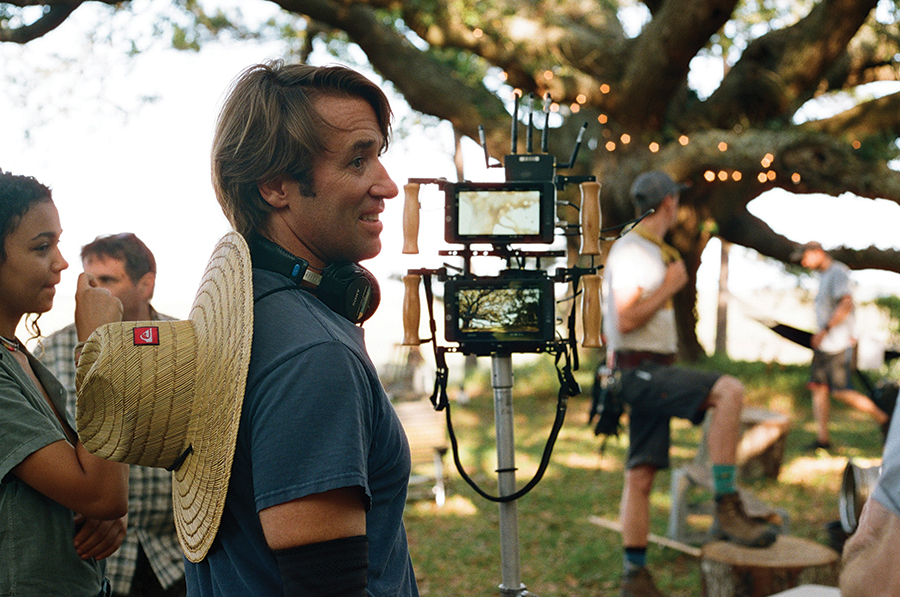
But then something magical happened. Jonas understood two things: First, he needed to create something that could be shot on the coast so he could stay close to home. Second, he would draw from his own experiences to make it real. “When I pulled from my own life instead of the movies I’d seen, it all came together,” he says. “You get to the universal by being super specific.”
One big challenge that Jonas and his team encountered was casting the show’s young stars. “We auditioned maybe 500 or 600 kids, and we really had to try to find kids who’d been outside and lived in the outdoors.” Not surprisingly, given the Pate brothers’ personal ties to the show’s geography, nearly every star they cast was from the South, except for one who hailed from Alaska. “Growing up outside, being around boats,” Jonas says, “it’s hard to fake that stuff, and it’s hard to make it look real if it’s not.”

I turn off the recorder and Mallory packs up her photography gear, and we say our goodbyes to Jonas. He is leaving soon for another production set. We share a number of mutual friends in Wilmington with him and Jennifer, and we talk about getting together for dinner once he returns.
Mallory and I are alone in the driveway when I realize that I have locked the keys in our car. To say that I was embarrassed — and, let’s be honest, panicked — would be an understatement. Mallory pulled out her phone and began searching for a locksmith. I have a flip phone, so I just stood there, weighing the two most logical options: breaking the window with one of Jonas’ landscaping rocks or just leaving the car and walking home, denying it was ever ours.
I cannot help thinking that if I were John B., the star of Outer Banks and leader of the Pogues, played by Chase Stokes, I would sneak into a neighbor’s garage and hotwire their car, drive home, procure a backup set of keys, and return for Mallory while passing under the investigating deputy’s nose. Or, if I were Topper, the leader of the Kooks, played by Austin North, I would bang on Jonas’ door and use his phone to call my father’s car service. But I am neither of these characters. I’m just me, so I apologize again to Mallory, and we wait for the locksmith together. PS
Wiley Cash is the Alumni Author-in-Residence at the University of North Carolina Asheville. His new novel, When Ghosts Come Home, is available wherever books are sold.




